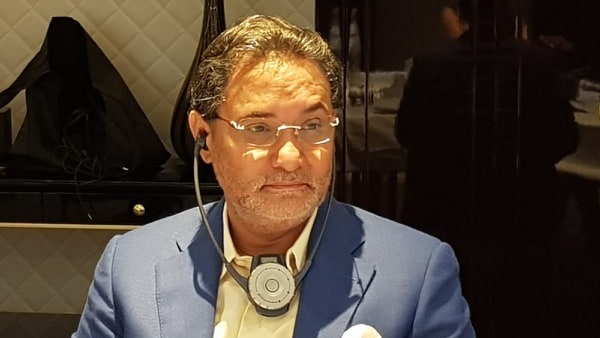Ali lashes out at European states for treating terrorists as freedom fighters

Ladies
and gentlemen,
Dear
attendees,
We meet
today to discuss an important issue, one that came at the center of debate by
researchers and the whole world for years. This is the issue of cooperation,
coordination and continual dialogue between the countries of the Mediterranean,
especially on common problems. Terrorism is right at the top of these problems.
Terrorists
and their financiers benefited a lot from political and ideological differences
between countries in our contemporary world.
For example,
while Arab states suffered an upsurge in terrorist attacks in the 1980s and
1990s, some of them against state institutions, tourist establishments and
Christian citizens in Egypt, some European states, the UK in particular, viewed
terrorists as freedom fighters, even as they were a mere bunch of armed men.
The same
terrorists were given the right to political asylum. They were allowed to
organize conferences and attend hearing sessions in elected parliaments,
including in the British House of Commons.
European
media conducted interviews with the same terrorists and allowed them to express
their views in which they denigrated the faith of governments and those who
were different from them.
Sorrowfully
enough, major media outlets, such as BBC, continue to call terrorists who stage
attacks against the Egyptian army and police in Sinai "militants". However,
if someone stabs a British citizen or drives over some British pedestrians on
one of the streets of London, the same media outlets immediately call this
person a "terrorist". The terrorists make the best use of this.
If a
politician calls for suppressing women, spreading hate against those who are
different and barring music and the arts on religious grounds, this is
considered a crime against civilization and humanity in the West. A politician
accused of making this is never allowed to win elections. Marine Le Pen is a case
in point in this regard.
Nevertheless,
some senior writers who write in major European newspapers, such as Robert Fisk
who writes for the British newspaper, Independent, consider Mohamed Mursi, a
Muslim Brotherhood leader who harbored the same racist views, a democratically
elected president who has to be supported and considered a victim, even if he
dies in a natural manner.
Such writers
do this only to score a political point, even without verifying what they
write. The 2012 elections, which Morsi won, were full of infringements.
Christian citizens were prevented from voting in the elections by the force of
arms.
Unifying
conceptions by the East and the West is becoming an urgent thing. This is
especially true when it comes to issues where there is a lot of controversy.
This controversy always benefits the terrorists, their financiers and
extremists.
I also want
to talk about the tactics of the terrorists these days. The terrorists always
exploit the weakness of the security apparatus in some areas or political
unrest in the same areas in order to take root and grow. After doing this, the
terrorists turn these areas into springboards for their expansion. Iraq and
Syria were clear examples in this regard.
Last week,
the Islamic State of Iraq and Syria (ISIS) used tensions between Pakistan and
India in declaring its state in the disputed Kashmir region.
When the
so-called Arab Spring occurred, Europeans were enthusiastic for it. We,
however, warned that the spring aims to create areas full of unrest so that
they can turn into fertile soils for the growth of terrorist organizations.
Nobody believed us then. The Europeans did not believe us because they believed
what some Western writers wrote then. These writers used to view the Arab
Spring political forces as freedom fighters.
ISIS
expanded in the Arab region and then attacked a number of European states.
International
cooperation, not only within the Mediterranean basin, has become extremely
important for the fight against terrorism and its financiers, especially in the
following areas:
1 –
Intelligence cooperation and the exchange of information
2 – Security
and military cooperation in chasing terrorists and denying them safe refuge
3 –
Technical and economic cooperation, especially in conflict zones, such as
Yemen, Libya and Sinai in Egypt, this cooperation has to include strong support
to state institutions so that they can win the fight against terrorism. Without
this cooperation, we will be in a big trouble, one that will harm us all.
Ladies and
gentlemen,
Dear
attendees,
Thanks so
much for coming here.





